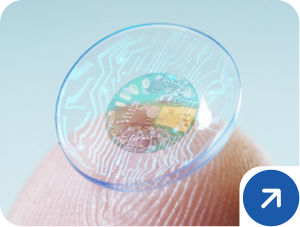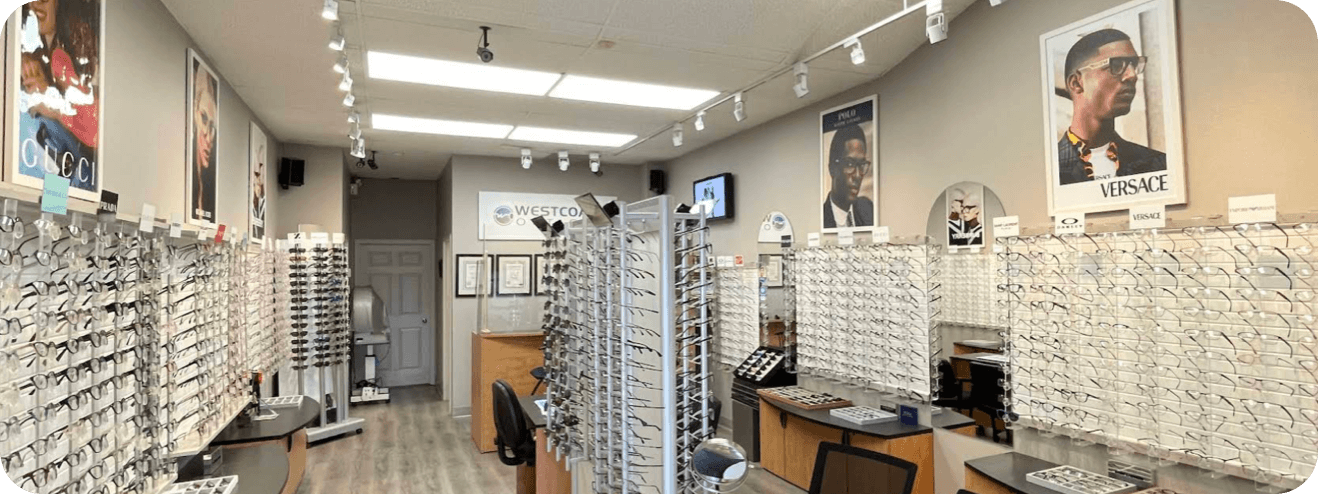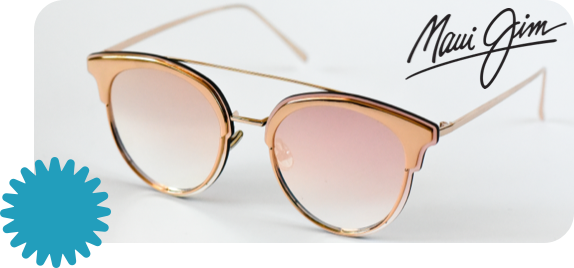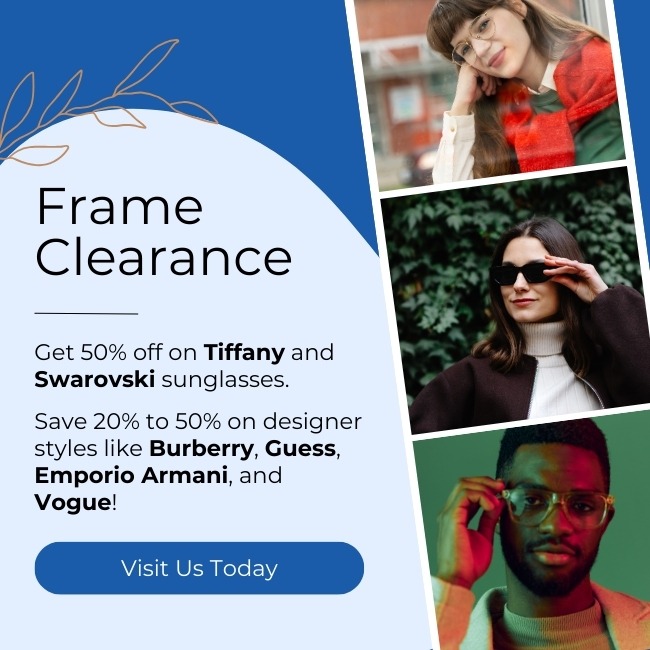Summer is here. That means it’s time for rest, relaxation, and sunshine. You know you need sunglasses for UV protection, but what does that mean for contact lens wearers? West Coast Optical wants to ensure your eyes are protected so you can catch some rays without worrying about your eye health.
What is UV Light?
UV (or ultraviolet) light is a type of electromagnetic radiation that mainly comes from the sun. It can be categorized into UVA, UVB, and UVC. The ozone layer absorbs UVC light, rendering it harmless. On the other hand, UVA and UVB rays can affect vision and result in long-term eye damage.
- UVA can pass through our cornea and cause damage to the lens and retina
- UVB rays are mainly absorbed by the ozone layer. About 5% still reaches the earth’s surface and can still cause damage to our eyes
Short-term overexposure to UV light may cause photokeratitis, which is similar to a sunburn on your eyes. It causes irritation and a painful or uncomfortable sensation for a brief period.
Prolonged exposure can harm your body permanently, leading to damage to the cornea, and damage to the conjunctiva and solar crystalline lens. Continual over-exposure to UV light can raise your risk of eye diseases such as:
- Cataracts
- Eye Growths
- Eye Cancer
Eye damage from UV light is more likely to occur in some people than in others. These people include those who have undergone cataract surgery and those who have certain eye illnesses such as glaucoma.
Often, damage to your eyes happens before you even notice it. It’s essential to be proactive with how you protect yourself from UV light.

How to Protect Your Eyes from UV Light
Sunglasses
When we think about eye protection, most of us will reach for our sunglasses first. But it’s important to note whether they are working to our benefit. Many people forget to check the UV rating on their sunglasses.
Ideally, you want sunglasses that guarantee 100% UVA and UVB protection. Even so, many sunglasses still allow exposure to UV light through the sides of the frames. Wraparound sunglasses can mitigate this issue.
If you’re unsure, it’s best to book an appointment with one of our experts at West Coast Optical to find the best and most protective option.
Contacts
Contacts are great because you don’t need to wear glasses. But that doesn’t mean you shouldn’t wear sunglasses even if you don’t want to wear your prescription glasses.
Compared to someone wearing glasses, someone wearing contact lenses is more exposed to the sun’s UV rays because they have no protective effect on the skin around the eyes.
Contacts will only offer protection to your cornea, leaving the rest of your eye exposed to potential damage. Multiple preventative measures should be used in conjunction to protect the eyes from harmful UV light eye damage.
It’s advised for contact wearers wanting better eye protection in sunlight to wear the following alongside their contacts:
- Wide-brimmed hat
- Polarized sunglasses
I Can’t Wear Sunglasses During My Activities, What Now?
Many summer pastimes are more high-energy than others, meaning it’s not always an option for contact wearers to double their protection with sunglasses. Fortunately, there is still a way to add some protection with UV contact lenses.
Contact lenses with an ultraviolet protection feature are known as UV contacts. By blocking these dangerous rays, these lenses are made to reduce the amount of UV radiation that your eye’s surface is exposed to. Additionally, UV contacts assist in protecting your eyes from UV rays that enter through the sides of or around sunglasses.
Many contacts do not offer UV protection but some, such as Acuvue, do. While Acuvue UV blocking contact lenses are not intended as a substitute for sunglasses, they do provide you with some extra protection. Acuvue contact lenses offer at least 97% blocking of UVB rays and at least 81% of UVA rays.
Additionally, Acuvue offers Oasys with transitions contact lenses that adapt to changing light environments. These contacts also offer 100% UVB and greater than 99% UVA light protection.
If you choose, you can wear them as often as your usual contacts. You can wear them all day long indoors and out, whether it’s a sunny day or a cloudy day. While these options are better than nothing, it’s best to put your sunglasses back on as soon as possible when outside.
If you are looking for maximized protection of the health of your eyes, it is best to wear:
- UV Contact Lenses
- Polarized Sunglasses, Preferably Wraparound Style
- Wide Brimmed Hat
If you’re ever unsure of what protection your sunglasses, eyeglasses, or contacts are offering you. The team at West Coast Optical is available to walk you through all your options to ensure your eyes stay protected this summer.















